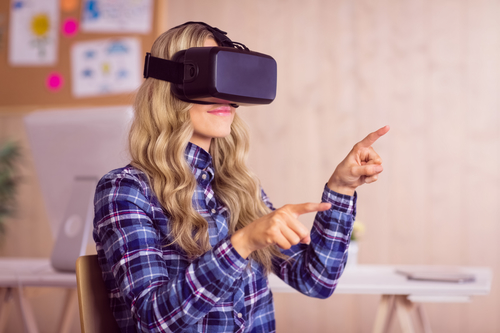Virtual reality has been relatively well-received. Yet, there is one thing few have discussed-it can get quite lonely and isolating. The hardware removes your view of any physical aspects of life-plus, you only hear what your headphones emit. Perhaps this is why augmented reality has not taken over the technology space as some analysts predicted it would many moons ago. There is a solution-it involves socialization.
Years of hype
Virtual reality still has not reached mass-level popularity expected by companies such as Facebook, Google and Microsoft. All of these organizations have poured billions of dollars into VR research and development-yet, we aren’t seeing people roaming the streets with VR headsets.
It is certainly cool, but it blocks out everything else. Consider Amara’s Law which states, “We tend to overestimate the effect of a technology in the short run and underestimate the effect in the long run.” Isn’t that the case here? Does the world want to become more isolationist in tone and throughout our communities?
The trend of detached individuals
When the TV first landed in our living rooms, it allowed people to stay home and congregate around their new source of entertainment and current events. As a result, shared experiences were on the decline. Fewer people went outside to interact with the world, which also meant people started to have less in common with each other.
Augmented reality takes gaming and entertainment to another level where we are transported to a completely different world-all by ourselves. Sure, it is escapism at its finest-but, you can only escape so much on your own before you long for the company of others. By nature, humans are social beings. We’re already continuously distracted by social media, our mobile devices and apps.
Make it social
In terms of communication, think of fax to email software. You are still communicating with a recipient, but you are also utilizing the latest technologies to send your messages. It is about interactive communication. On the other hand, virtual reality has a tendency to make you feel much more lonely. No one else is on the other side except for the fantastical graphics.
This is why developers are working on making VR feel more emotionally authentic through adding a social component. On platforms such as Playstation and Xbox, social gaming is already a massive enterprise.
The social element heightens our experiences. Games such as World of Warcraft and Pokémon Go are wildly popular because you must interact with other people. Without socialization, we get bored, annoyed and sad.
Recently, Facebook revealed its social VR experience called Oculus Rooms and Parties. In this space, your avatar hangs out in virtual rooms where you can play games and watch movies with other avatars of real people. It appears that the big VR companies are starting to understand that VR needs to be more social.
There isn’t any doubt that VR will make a lasting impact in the world of technology. Certainly, there will be a world of uses for the technology from medical care to dating. Nonetheless, the most popular app of all seems to be enjoying the company of real people, in real life.
